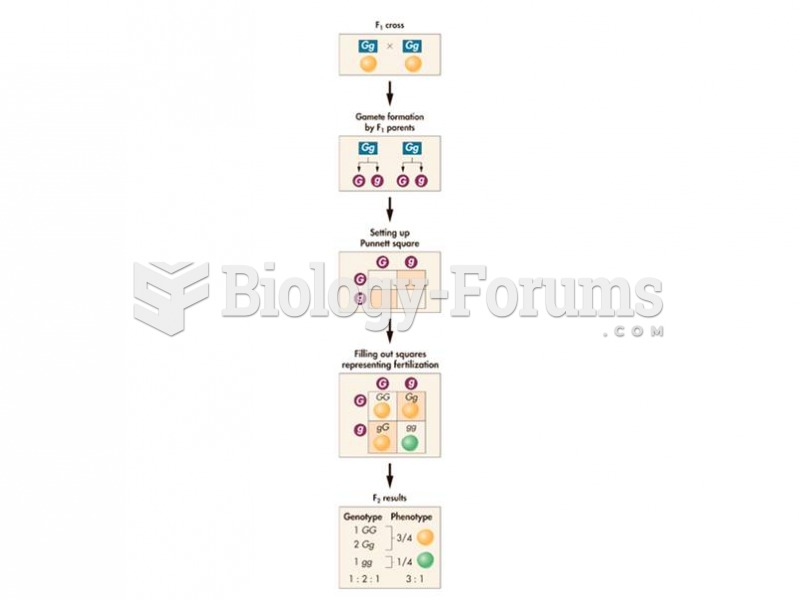|
|
|
Many of the drugs used by neuroscientists are derived from toxic plants and venomous animals (such as snakes, spiders, snails, and puffer fish).
Malaria mortality rates are falling. Increased malaria prevention and control measures have greatly improved these rates. Since 2000, malaria mortality rates have fallen globally by 60% among all age groups, and by 65% among children under age 5.
It is believed that the Incas used anesthesia. Evidence supports the theory that shamans chewed cocoa leaves and drilled holes into the heads of patients (letting evil spirits escape), spitting into the wounds they made. The mixture of cocaine, saliva, and resin numbed the site enough to allow hours of drilling.
Astigmatism is the most common vision problem. It may accompany nearsightedness or farsightedness. It is usually caused by an irregularly shaped cornea, but sometimes it is the result of an irregularly shaped lens. Either type can be corrected by eyeglasses, contact lenses, or refractive surgery.
Elderly adults are at greatest risk of stroke and myocardial infarction and have the most to gain from prophylaxis. Patients ages 60 to 80 years with blood pressures above 160/90 mm Hg should benefit from antihypertensive treatment.
 Amniocentesis. In this examination procedure, amniotic fluid is aspirated with a syringe that is ins
Amniocentesis. In this examination procedure, amniotic fluid is aspirated with a syringe that is ins
 Intradermal drug administration: (a) cross section of skin showing depth of needle insertion Source:
Intradermal drug administration: (a) cross section of skin showing depth of needle insertion Source:
 The upper panel shows that scores of four diverse samples of boys on a moral reasoning test show a ...
The upper panel shows that scores of four diverse samples of boys on a moral reasoning test show a ...




